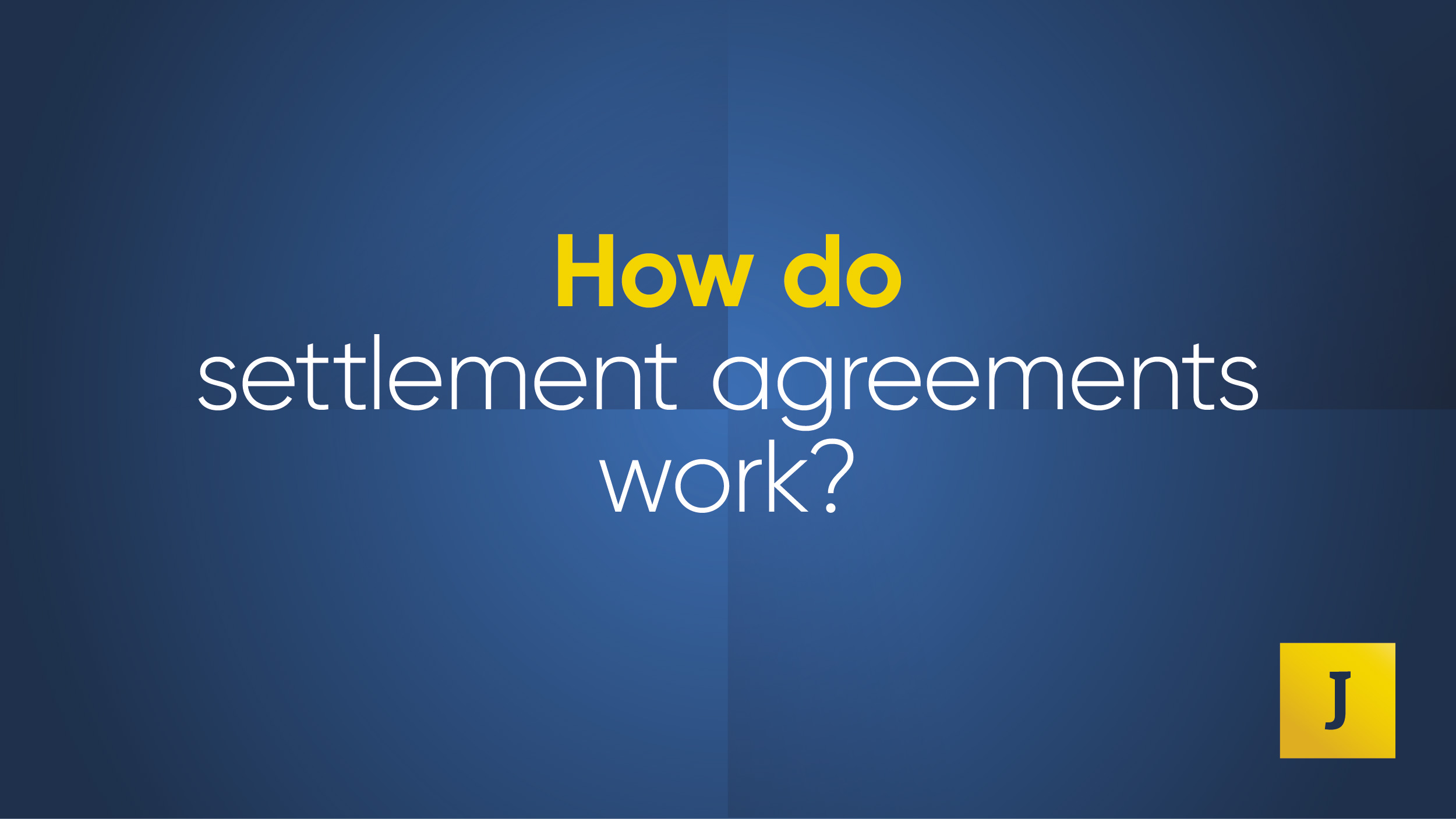Feeling unsettled over an employment situation? You may need a settlement agreement.
At Jefferies, we offer all the guidance you need to prepare for a smooth settlement agreement. Including:
- Advising employees on their rights and how to negotiate
- Ensure the terms are fair and maximise any payment to you
- Drafting the settlement agreement
- Ensure payment is made to you in most tax efficient way
What is a settlement agreement?
Also known as a ‘compromise agreement’, a settlement agreement is designed to make it easier for employers to agree terms with departing employees, ultimately by writing and signing a ‘mutual agreement’. This is a legally binding contract between both parties which states the full terms and conditions upon the termination. The agreement will usually include paid salary to a certain date, however, may also include a tax-free sum, holiday pay, or other bonus payments.
A settlement agreement can be used in many employment situations, either during or after employment, and can be used as a swift way to resolve existing dispute or prevent a negative situation from prolonging. A few common examples of settlement agreement negotiations include:
- When an employer would like to remove an employee underperforming in their role
- When an employee brings a claim against the employer – such as a complaint of bullying or harassment
- When an ex-employee brings a claim against the employer – such as a constructive dismissal claim
Once the agreement has been signed by both parties, as well as a Solicitor, it becomes a legally binding document and will most likely never be brought forward to an employment tribunal once settled. So, if written effectively, this agreement will make it much easier to let an employee go without the need for any further disputes or conflict.
Employment Law is not everyday knowledge, so it is critical that you consult with an expert Solicitor to ensure your agreement is secure to yield the best outcome. Get in touch with our team today and we’d be happy to help.
What are the benefits of a settlement agreement for employers and employees?
A termination of employment can be a tense situation for all those involved, usually bringing some kind of conflict or discomfort, and often with the employee seeking some form of relief or compensation. A settlement agreement can be beneficial for both employers and employees, offering peace of mind that they can move forward without any more ties to the company or distress.
For employers, alternative disciplinary processes and redundancy routes can also prove costly and time-consuming, so a settlement agreement provides a quicker route to nipping a bad employee situation in the bud! This also offers the peace of mind that they can move on without the employee bringing a claim to tribunal court. At Jefferies, our settlement agreement team are professionals and will work to resolve matters as soon as possible while ensuring minimum disruption to a business.
For an employee, a settlement agreement can offer relief that they can move forward without any further battles and some financial support until they find their next place of employment. They may also look to seek other reprieve in the agreement, such as a positive written reference that will help them to secure a future job. Our team have helped many employees secure a fair settlement agreement for their personal case, often gaining a favourable reference as a result.
What if the settlement agreement has already been offered?
An employee is not obliged to accept a settlement agreement, so it is crucial that an employer makes this as fair as possible from the start. An employee can simply refuse it outright or may look to consult with a Solicitor to negotiate it for a greater outcome.
With the aid of a Solicitor, an employee can better clarify whether the settlement agreement is reasonable, or if there is motion to disagree and renegotiate the terms. Sometimes, the Solicitor can help the employee to negotiate a settlement agreement that is ‘without prejudice’ (‘off the record’). This is often done in cases where the employee does not want to go to an Employment Tribunal to finalise the agreement, but still wishes to finalise a good deal in a legal document.
There are cases in which an employee may be able to bring forward a further claim in consequence of a settlement agreement offer. With the expertise of a Solicitor, the employee may be able point out how the employer breached their original employment contract, so this may impact on the settlement agreement amount. For instance, if the settlement agreement is considered to be given in relation to bullying and intimidation by the manager, there may be a case to raise a further ‘formal grievance’ complaint.
Are you unsure whether or a settlement agreement is fair or if there may be a case to negotiate? We understand that often employees can feel threatened or afraid to write an appeal as they feel it could create more problems, however, we can help you to construct this complaint professionally. At Jefferies, we urge you to consider all your options and we are able to advise. Send us an enquiry to speak with one of our friendly team of Employment Law experts today.
Your settlement agreement solicitors in Essex
Looking for advice with a settlement agreement matter? At Jefferies Solicitors we help secure settlement agreements between employers and employees, with most commercial disputes solved within the first day. Book a consultation with a knowledgeable Solicitor. You can email our dispute resolution team directly at disputeresolution@jefferieslaw.co.uk or call us on 01702 332 311.
The contents of this article are for the purposes of general awareness only. They do not purport to constitute legal or professional advice. The law may have changed since this article was published. Readers should not act on the basis of the information included and should take appropriate professional advice upon their own particular circumstances.
